If you’re looking for some great Khan Academy alternatives, you’ve come to the right place.
As parents, we are constantly on the lookout for the best educational resources to help our children thrive in their learning journey.
Khan Academy has undoubtedly been a go-to online course website for many, offering a wide range of subjects and interactive courses. But here’s the thing: no single platform can cater to every child’s unique needs and preferences.
While Khan Academy has earned its reputation as a top-notch resource, it’s essential to explore other options to ensure a tailored learning experience.
In this blog post, we’ll introduce you to some fantastic alternatives and competitors to Khan Academy that are worth exploring.
Each alternative we’ll be discussing has its own strengths, features, and teaching approaches that may resonate more effectively with your child’s learning style and interests.
We understand that every child is unique, with their own set of strengths and areas of interest. By exploring these alternatives to Khan Academy, you can broaden your child’s educational horizons, expose them to fresh perspectives, and provide a diverse range of learning opportunities. The goal is to find the perfect fit that will engage, inspire, and motivate your child to unleash their full potential.
So, whether your child is a budding artist, an aspiring coder, a science enthusiast, or an avid reader, we’ve got you covered. In the upcoming sections, we’ll introduce you to a carefully curated selection of alternative platforms that offer exciting courses, engaging activities, and comprehensive learning resources across various subjects. Get ready to embark on a virtual learning journey that’s tailor-made for your child’s unique passions and educational needs.
Disclosure: Some of the links in this article are affiliate links, meaning at no additional cost for you, we might get a commission if you click the link and purchase.
What is Khan Academy?
Khan Academy started out as one of the “go-to” alternative learning sites for supplemental learning for K-12 students and the homeschooling community. They have since expanded somewhat with regard to scope, but their main audience is still students from pre-K to High school level.
Some of the strengths of Khan Academy are that the platform is completely free for all learners and teachers.
Teachers can use Khan Academy to set up student groups, view individual learning progress, and assign specific study areas.
Khan Academy uses its proprietary algorithms to suggest a learning path based on a student’s progress. The platform identifies learning gaps using pre-assessment tests based on a standardized body of knowledge. It places the student in a particular grouping, with individualized learning paths and goals.
Khan Academy is aligned with several learning standards, such as AP, SAT, LSAT, MCAT, and NGSS, depending on the learning subjects. Students can also use Khan Academy for test prep for these standardized tests. The platform saves the results, identifies any gaps, and presents training content that helps fill those gaps for a higher test score in the future.
Khan Academy offers “extra-curricular” subjects, such as Economics, Life Skills, and Computing. Within the area of Computing, they offer several ways to learn how to code or how to get introduced to the world of computer science. They offer engaging ways to practice coding, which is a great way even for novice adults to get started with programming.
Most adult learners might overlook Khan Academy as an option for online learning due to their school-age-focused marketing, but this platform is a great free tool to see if you like programming. Their Hour Of Code™ is an innovative way to get you started, removing the intimidation factor of coding.
Drawbacks to Khan Academy
Although Khan Academy is a solid platform for standard K-12 education, it offers limited courses outside of that spectrum and has a few things that other platforms do better.
First, Khan Academy is closely aligned with state and federal education standards, resembling an extension of public school at home. This can be advantageous unless you seek a less rigid way of learning that promotes creativity and critical thinking, rather than simply answering questions correctly. Khan Academy’s algorithm is written in a way that the platform is test-driven, with multiple-choice and true-false questions as indicators of a student’s understanding of specific content.
While Khan Academy does a good job adjusting to a student’s level of experience and progress, it does not consider a student’s interests or preferred way of learning. Some subjects might be presented as somewhat drab. And let’s be honest: making pre-calc fun is a challenging assignment for anyone!
Khan Academy’s choices are limited to programming languages or more advanced learning content. Although you can track your progress, you are only accountable to yourself and have to be very self-motivated to return to the activities on a regular basis. You can sign up for notifications and daily reminders, but in the end, you have to be self-disciplined enough to go through the courses.
Also, because Khan Academy is free, you might not take your studies as seriously as when you are financially invested. Khan Academy also does not offer completion certificates or degrees: even scoring high on their SAT prep test does not guarantee you will get a high SAT score on the real test. However, as the saying goes: “You don’t look a gifted horse in the mouth.”
The Best Khan Academy Alternatives
We have reviewed several alternatives to Khan Academy to give you some ideas on what the other possibilities of online learning are:
1. Skillshare
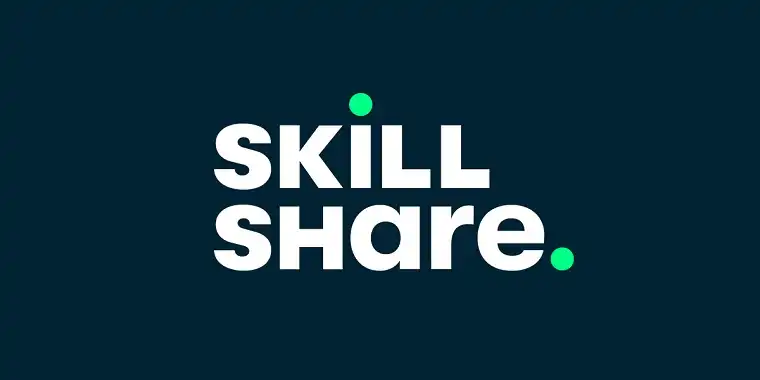 Skillshare
Skillshare
Skillshare is the ultimate website for learning just about anything imaginable. You can explore 30,000+ online classes across countless categories, from business to hobbies and more.
Skillshare is our top choice for online learning, simply due to its variety of courses, offering you over 34,000 courses to choose from, brought to you by over 11,000 instructors. They even have a decent collection of courses that kids can take.
Each instructor receives student feedback and ranking so that high-quality content is rewarded and elevated, providing you with the best choices to pick from. The instructors are passionate about the subjects they teach and their passion is contagious, making learning fun and engaging.
Skillshare offers individual courses on anything you can think of to learn, from intro to animation to UI/UX Design classes. The platform starts out with your area of interest, then shows any related skills, and displays features and popular courses, based on your selection.
Compared to Khan Academy, Skillshare is much more flexible and “free flow” with regard to learning and exploring: there is no built-in continued learning push based on perceived learning gaps. Rather, Skillshare taps into your interests, and instructors keep you engaged so that the learning is interest-led, fueled by your curiosity and desire to know more. Self-contained classes keep the learning process manageable, and successful completion keeps you motivated.
Skillshare offers you to try out your first month for free. After that, you can continue to access their library with an annual Premium Membership (see our Skillshare pricing guide for info).
Check out our Skillshare review for an in-depth look at all the platform has to offer.
Click here to try Skillshare free for 30 days.
2. Coursera
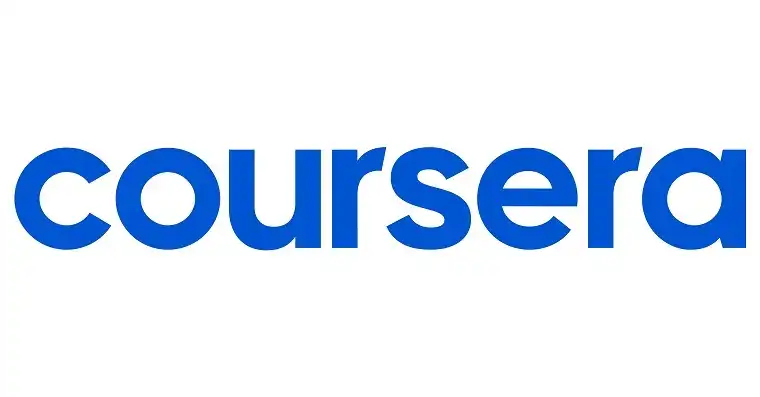 Coursera Plus
Coursera Plus
Coursera Plus gives you unlimited access to over 7,000 courses from the world's top universities and organizations.
Coursera is a great Khan Academy alternative due to its wide selection of university-level courses.
With Coursera, you can learn from the world’s best instructors and universities. Whether you’re looking for a degree program or just to brush up on certain skills, you can find it with Coursera.
You can audit any course for free on Coursera, but if you or your student want to earn a certificate of completion, payment is required.
Coursera Plus is their subscription option that offers unlimited access to over 7,000 classes on the platform.
Coursera offers different tracks to choose from, whether you want to explore your interests with one course at a time, are ready to commit to a degree, or whether you want to take courses toward your Master’s degree.
As a blend between the traditional track-learning approach and a student-led learning approach, Coursera is an attractive option for most students because of that.
For anyone who needs structure to be successful, tools like certificates of completion and the Mastertrack™ option help you stay focused and keep going. These tools can also help you stand out when applying for a specific job, especially in technology.
Most courses take anywhere from 1-3 months, depending on your educational path. If you are unsure which computer programming language best fits your interest and skill set, you can try out beginner’s courses in HTML or Java and see how you like them before committing to an entire track.
Our Coursera Plus review has more info on the platform’s subscription offering.
Click here to try a Coursera Plus subscription free for 7 days.
3. edX
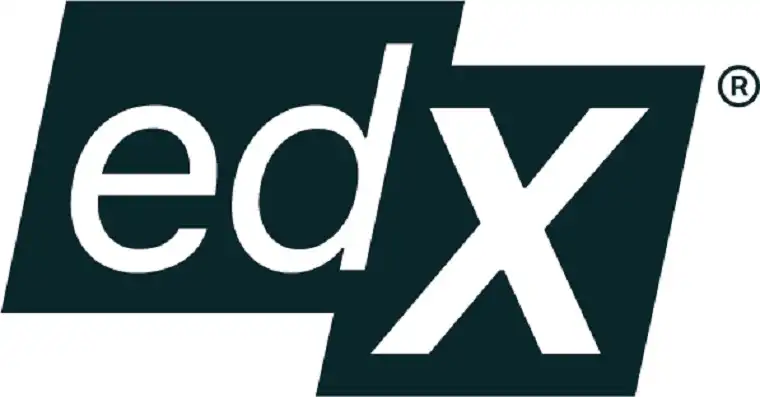 edX | Free Online Courses by Harvard, MIT, & more | edX
edX | Free Online Courses by Harvard, MIT, & more | edX
edX is an online learning platform offering courses from some of the world's most prestigious universities and organizations on a vast array of subjects.
Since 2012, edX has provided high-quality online courses to millions of students worldwide. Today, over 500,000 students log in daily to edX to continue learning, whether for personal development, career advancement, or business growth.
edX offers over 3,600 courses in a wide range of topics.
edX partners with over 160 top universities to propel your career and to help you add value to any team. Some of the universities on edX include Harvard, Berkeley, and MIT. This makes edX a good Khan Academy alternative for high school students and adults alike.
Both individuals and businesses alike choose edX for continued education and talent development due to their top-quality course content, various subject choices, and top-notch instructors.
If you’d like to learn more about what edX has to offer, we encourage you to read our edX review.
4. Udemy
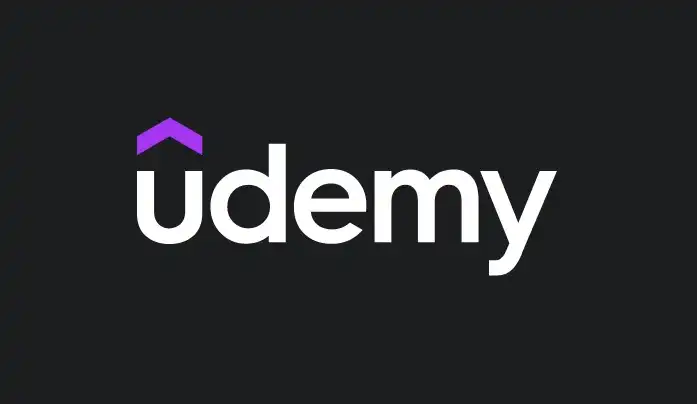 Udemy
Udemy
With over 210,000 online video courses available, you can learn just about anything on Udemy. Transform your life by gaining new skills and knowledge from the comfort of your home.
If you are looking for a well-rounded established online learning platform, Udemy might be your pick. Udemy was launched in 2010 and today, it offers over 210,000 courses on pretty much any subject, from music to database management. There are even courses that are good for kids.
Whether you are just getting started or looking to polish up your experience in a particular area of expertise, Udemy offers courses to students on all sides of the experience spectrum.
In addition to that, Udemy also offers classes that help homeschooling families supplement their learning, especially when it comes to electives. If you are not particularly musically inclined, you can have Udemy teach your student how to play the guitar, or better yet, you can learn alongside your student and start a garage band.
You can check out our Udemy review to find out more about what this platform has to offer, including the pros and cons to consider.
Click here to get started with Udemy.
5. Udacity
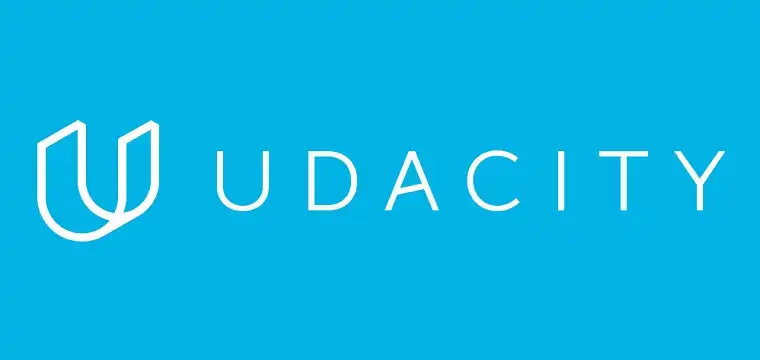 Udacity
Udacity
Udacity is an online learning platform that offers courses and Nanodegree programs in computer science, data science, and other related fields to help learners build in-demand, job-ready skills.
Udacity is another solid online course platform that can help you get quality education at a reasonable cost. Udacity offers industry-accepted certificates upon successful completion of a specific program. Many employers partner with Udacity; therefore, earning certification from Udacity helps you be more marketable.
Udacity is great for both beginners and experts alike. You can start coding in one of Udacity’s boot camps, whether it’s Java or Python. Their Nanodegrees last about 2-4 months and equip you with the skills necessary to start your new career confidently.
You can get started with Udacity for free, trying out specific courses to see how you like this platform’s layout and course presentation. If you decide to pursue a Nanodegree, the Udacity pricing averages $1,200/program, depending on which track you choose.
Our full Udacity review fully covers everything you need to know about this course platform.
Click here to get started with Udacity.
What to Look for in a Khan Academy Alternative
There are main deciding factors every student considers when making a choice between their top online course platform contenders.
While Khan Academy might be a great platform to check out the “how-to” of HTML or SQL, pick one of our alternate suggested online course platforms if you are getting serious about making programming or Web design your career choice. The major deciding factor categories listed below should help you boil it down to your top pick:
Course selection
Every platform offers a variety of courses in different areas of study. While most online course platforms attempt to be versatile in their course offers, others are more specialized and focused on their audience, whether left-brain analytical focus or right-brain creative focus.
Content presentation
The majority of online course platforms present their course material via video streaming, with a presentation of the subject in an engaging and relatable way. While some platforms offer live courses or student groups, others have downloadable content, projects, and hands-on activities to help you apply your learned skills and to practice mastery.
Learning goal clarity
Depending on your learning goals, some platforms offer self-contained goals, such as successful course completion, while others offer an entire degree program with a strategically laid out course plan. Some platforms offer skill pre-assessments to help you define your learning goals.
Support
Each platform offers a different level of support: choose from autonomous learning to AI-developed learning path to full 24/7 support, depending on your preference, and to help you succeed.
Pricing
Every platform allows you to test them for free, for a specified time, or for several courses. After your trial period, you can choose between a monthly subscription or an annual membership. The cost differs based on your learning path choice and the platform, but averages between $12.50-$395/month, depending on your goals and needs. The high-end cost is often a full Nanodegree option for those serious about a career change with required certifications.
A Final Word on Khan Academy Alternatives
With so many excellent Khan Academy competitors out there, there’s no shortage of options for you to choose from.
Each of these course sites has its own advantages and drawbacks, so be sure to do your research.
Consider what works best for you and your family in terms of features, cost, convenience, and more.
Have any questions about our guide to the best alternatives to Khan Academy? Let us know by commenting below.


